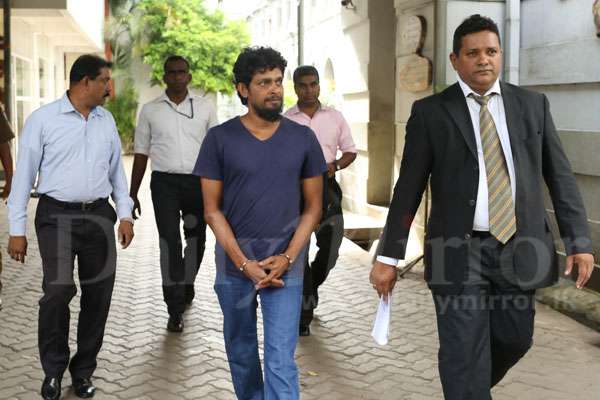
The United States has announced bans on two more Sri Lankan military officials for human rights violations, as the State Department expand sanctions on those accused of war crimes.
Chandana Hettiarachchi, a Sri Lankan naval intelligence officer, involved in the ‘Trinco 11’ disappearances and Sunil Ratnayake, a soldier guilty of murdering at least 8 Tamils, are now barred from entry to the US.
Their families are also barred from entry.
The men become the second and third Sri Lankan soldiers to be barred from entry to the United States over their involvement in war crimes. In 2020, Sri Lankan army chief Shavendra Silva was barred from entering the USA “due to credible information of his involvement, through command responsibility, in gross violations of human rights”.
"We are determined to put human rights at the center of our foreign policy, and we reaffirm this commitment by using appropriate tools and authorities to draw attention to and promote accountability for human rights violations and abuses, no matter where they occur," said the US State Department in a statement this evening.
The US named the Sri Lankan soldiers as;
Chandana Hettiarachchi, a Sri Lankan naval intelligence officer, for his involvement in gross violations of human rights, namely, the flagrant denial of the right to liberty of at least eight “Trincomalee 11” victims, from 2008 to 2009.
Sunil Ratnayake, a former Staff Sergeant in the Sri Lanka Army, for his involvement in gross violations of human rights, namely the extrajudicial killings of at least eight Tamil villagers in December 2000.
"The designation of these two Sri Lankan individuals is not the only action we are taking in support of accountability for gross violations of human rights in Sri Lanka," the statement added.
Chandana Hettiarachchi

File photograph
Lieutenant Commander Chandana Prasad Hettiarachchi alias 'Navy Sampath', had earlier evaded arrest over the abduction and forced disappearance of 11 people, who were predominantly Tamil. He was later released on bail.
All 11 victims were abducted in Colombo between August 25, 2008 and February 2009 and held for ransom at navy bases in Colombo and Trincomalee, before being presumably murdered.
The eleven victims have been named as Kasthuriarachchi John, Thyagarajah Jegan, Rajiv Naganathan, Soosaipillai Amalan, Soosaipillai Roshan, Kasthuriarachchi Anton, Prageeth Vishvanathan, Thilakeshwaran Ramalingam, Mohamed Dilan, Mohamed Saajid and Ali Anwar. Two fathers and their sons are among the victims and their ages range from 17 to 50 at the time of abduction.
The United Nations Human Rights Council (UNHRC) has tracked investigations and prosecutions relating to emblematic cases in Sri Lanka, including the abduction of the 11 youth. UN Human Rights commissioner Michelle Bachelet, noted in a report earlier this year that "not a single emblematic case has been brought to a successful conclusion or conviction."
See an excerpt of an interview with the mother of one of the victims below.
Thiyagarajah Jegan was one of those abducted and disappeared by the Sri Lankan navy in 2008.
— Tamil Guardian (@TamilGuardian) October 15, 2021
His mother spoke to @47Roots in 2018 about her struggle for justice.
This week, charges against the commander were dropped.
Read more here: https://t.co/cu6c9fZTgh pic.twitter.com/T3N5zUqEyL
Sunil Ratnayake
![]()
File photograph
Sergeant Sunil Ratnayake, was convicted in 2015 for the murder of eight civilians (including children) in Jaffna in 2000. However, in 2020, he was released following a presidential pardon.
He had been sentenced to death in 2015 for the murder of the 8 Tamils, including 3 children, in the town of Mirusuvil. The Tamils had been arrested by Sri Lankan security forces on the10th of December 2000. The following day their bodies were found in a mass grave with their throats slashed, according to the District Medical Officer’s post-mortem report. All but two of the bodies had been stripped naked. The youngest to have been murdered was a 5-year-old child.
The killings have since been dubbed the Mirusuvil massacre.
Ponnathurai Maheswaran, who managed to survive and escape from the army, testified in court and identified at least five of the soldiers responsible. After a lengthy court process only Ratnayake, a member of the military’s elite Long Range Reconnaissance Patrol (LRRP), had been sentenced. The other men were cleared of all charges.
